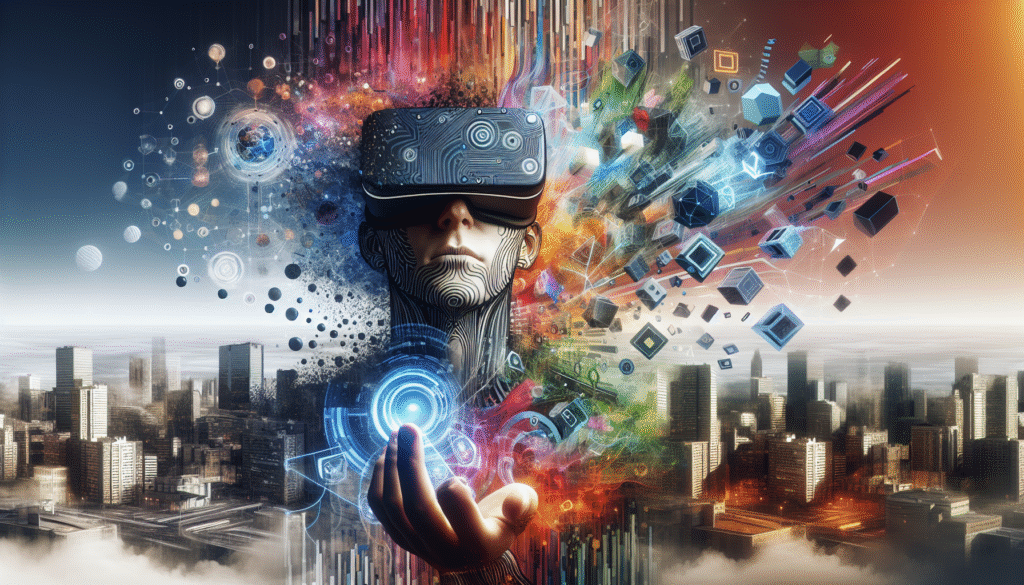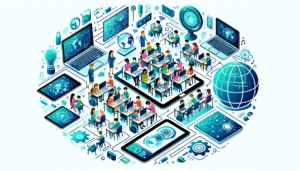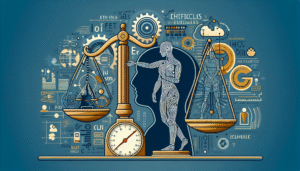
The Metaverse’s Expanding Influence: Reshaping Social Interactions
The metaverse, a persistent, shared, 3D virtual world, is poised to revolutionize how we interact, work, and play. No longer a futuristic concept confined to science fiction, the metaverse is rapidly evolving, driven by advancements in virtual reality (VR), augmented reality (AR), and blockchain technology. This convergence is creating a dynamic digital landscape with profound societal implications.
Transforming Social Connections: Virtual Communities and Digital Identities
One of the most significant impacts of the metaverse is its potential to reshape social interaction. Virtual worlds offer new avenues for connection, enabling individuals to transcend geographical boundaries and build communities based on shared interests. These digital spaces can foster a sense of belonging, particularly for marginalized groups or individuals with limited physical mobility. However, concerns exist regarding the potential for increased social isolation and the blurring of lines between online and offline identities. As avatars become extensions of ourselves, questions arise about authenticity, representation, and the psychological impact of inhabiting virtual personas.
Redefining Work and Collaboration: The Future of Remote Work
The metaverse is transforming the future of work, offering immersive collaborative environments that transcend the limitations of traditional video conferencing. Imagine architects collaborating on 3D building designs in a shared virtual space or surgeons practicing complex procedures through VR simulations. These possibilities are becoming realities, increasing productivity, fostering innovation, and redefining the meaning of “office space.” However, equitable access to the necessary technology and the potential for exacerbating existing digital divides must be addressed to ensure inclusive participation in this evolving work landscape.
Revolutionizing Entertainment and Leisure: Immersive Experiences and Virtual Economies
The metaverse offers unparalleled opportunities for entertainment and leisure. From attending virtual concerts and sporting events to exploring fantastical realms and interacting with digital art installations, the metaverse promises immersive experiences that blur the lines between reality and virtuality. Moreover, the integration of blockchain technology facilitates the creation of virtual economies, enabling users to own, trade, and monetize digital assets, fostering creativity and driving new economic models. However, concerns surrounding digital ownership, intellectual property rights, and the potential for speculative bubbles require careful consideration.
The Metaverse and Education: Immersive Learning and Personalized Experiences
The metaverse holds immense potential for revolutionizing education. Immersive learning environments can enhance engagement and comprehension, allowing students to experience historical events, explore scientific concepts, or dissect virtual organisms in a more interactive and intuitive manner. Personalized learning experiences, tailored to individual learning styles and paced to suit individual needs, can further optimize educational outcomes. However, ensuring equitable access to these resources and addressing the potential for exacerbating educational inequalities are crucial for realizing the metaverse’s full educational potential.
The Ethical and Societal Challenges of the Metaverse
The rapid development of the metaverse raises a host of ethical and societal challenges. Data privacy, security, and the potential for misuse of personal information are paramount concerns. The addictive nature of immersive virtual environments and the potential for blurring the lines between reality and virtuality also warrant careful consideration. Furthermore, questions surrounding governance, regulation, and the potential for the metaverse to exacerbate existing societal inequalities require thoughtful discussion and proactive solutions.
Shaping the Future of Healthcare: Virtual Therapies and Medical Training
The metaverse is poised to transform healthcare, offering innovative solutions for patient care, medical training, and therapeutic interventions. Virtual reality therapies are proving effective in treating phobias, PTSD, and chronic pain, offering accessible and engaging alternatives to traditional therapeutic approaches. Surgical simulations and medical training programs within the metaverse can enhance the skills and preparedness of healthcare professionals. However, ensuring the efficacy, safety, and ethical implementation of these technologies is crucial for responsible integration within the healthcare ecosystem.
The Metaverse and Commerce: Virtual Marketplaces and Personalized Shopping
The metaverse is revolutionizing commerce, creating immersive shopping experiences and virtual marketplaces where users can browse, try on, and purchase digital and physical goods. Personalized shopping experiences, tailored to individual preferences and driven by data-driven insights, are transforming the retail landscape. However, concerns surrounding consumer protection, data privacy, and the potential for manipulative marketing tactics require careful regulation and ethical considerations.
The Metaverse and Governance: Decentralization and Digital Citizenship
The metaverse presents new challenges and opportunities for governance. Decentralized autonomous organizations (DAOs) and blockchain-based governance models are emerging, potentially transforming how communities are managed and decisions are made within virtual worlds. The concept of digital citizenship, encompassing rights, responsibilities, and participation within virtual societies, is gaining prominence. However, establishing clear legal frameworks and addressing the potential for jurisdictional conflicts are crucial for ensuring responsible governance within the metaverse.
The Evolution of Digital Identity: Avatars, Representation, and Self-Expression
The metaverse is fundamentally changing how we perceive and express our identities. Avatars, our digital representations within virtual worlds, allow us to explore different aspects of ourselves, experiment with self-expression, and connect with others in new and meaningful ways. However, issues surrounding representation, inclusivity, and the potential for misrepresentation and online harassment require ongoing dialogue and proactive solutions. The evolution of digital identity in the metaverse raises fundamental questions about authenticity, self-perception, and the evolving relationship between our physical and digital selves.















